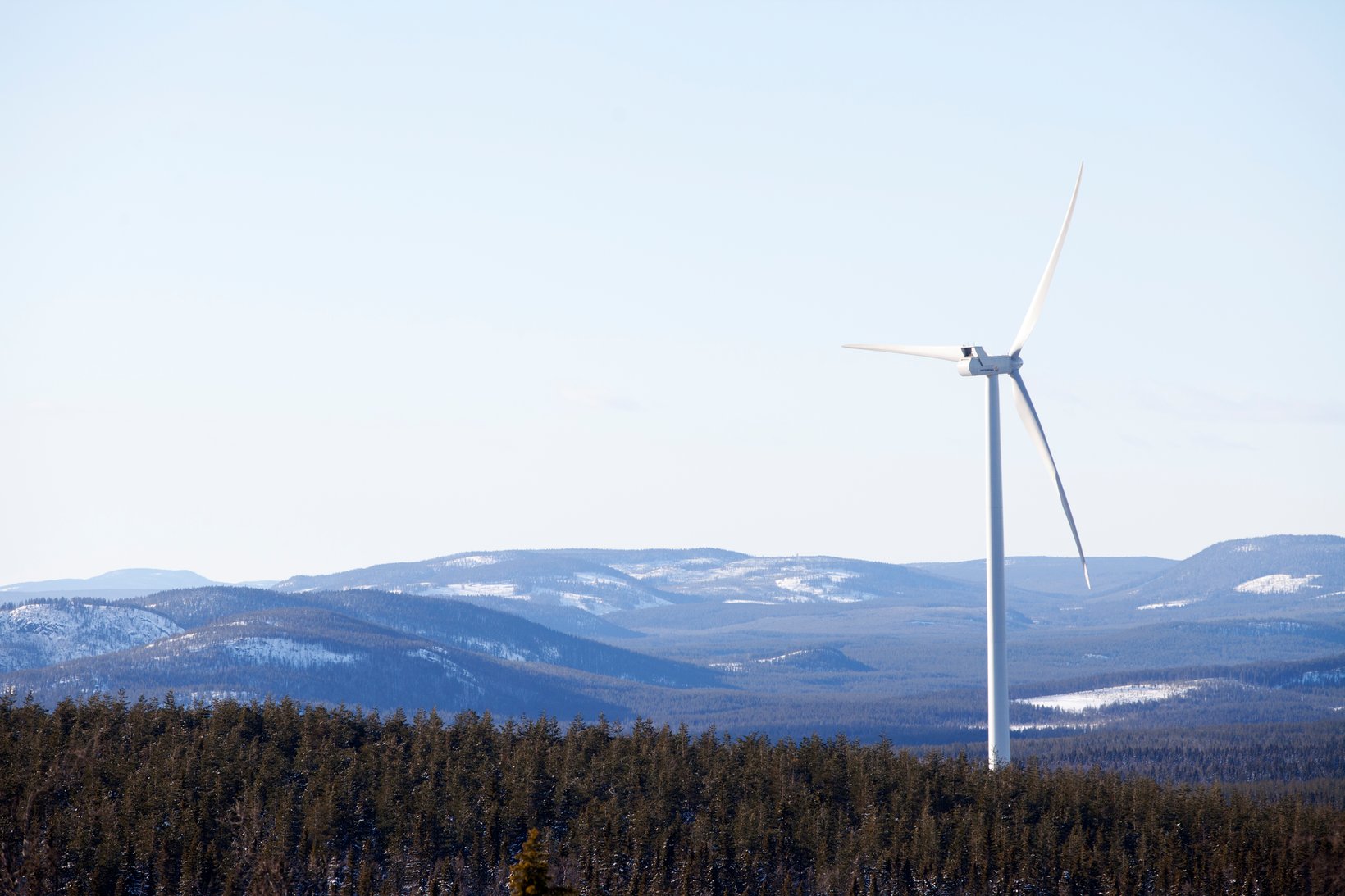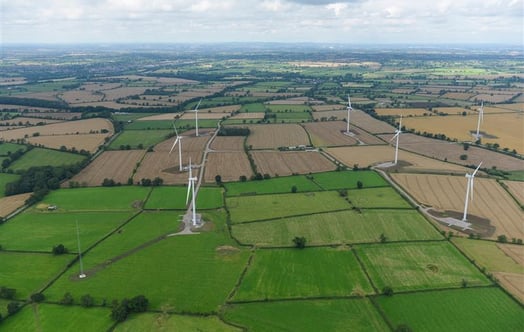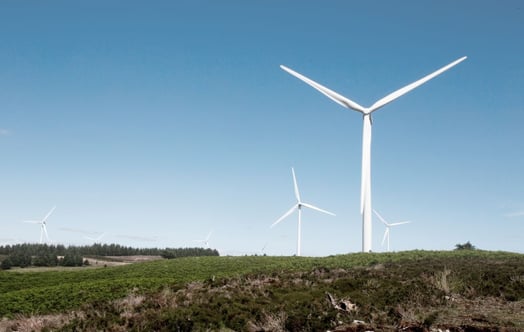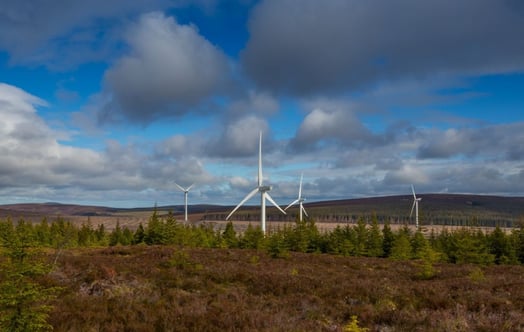
UK households want government to expand renewable energy sources to support climate-friendly lifestyles
- Half of people surveyed say that the government can help them achieve a climate-friendly lifestyle through expansion of renewable energy sources1.
- New survey from Vattenfall shows that the priority placed on a climate-friendly lifestyle in the UK aligns with European neighbours2.
- Conversely, results show concerns remain about energy infrastructure being constructed in rural areas3.
UK households want the government to expand renewable energy generation, according to the Vattenfall Energy Barometer, which has been expanded to include UK residents for the first time.
Half of respondents (54%) said they wanted the government in this country to continue investing in renewable energy sources1 – similar to other European countries surveyed4- with only 9% of UK respondents saying they didn’t want any support from the Government5.
The Vattenfall Energy Barometer has produced insights into the attitudes and behaviours of the UK population toward climate change. The barometer compares the UK results with five other countries; Germany, Finland, France, the Netherlands and Sweden.
Brits are optimistic about renewable energy’s role in cutting costs and boosting the reliability of the UK’s energy system; nearly two-thirds (65%) are open to living in a property connected to a heat network and say it would positively influence their decision were they to move house6. 67% believe the increased use of renewable energy sources will lower energy costs7; and almost seven in every 10 people (68%) believe renewables will improve energy reliability both in terms of consistent supply and reduced risk of power cuts8.
However, concerns about the cost of the energy transition are also prevalent. UK households (31%) expressed the most concern, alongside France, about whether or not they could afford costs associated with the energy transition. This is in comparison to Finland, where 42% said they weren’t very concerned or weren’t concerned at all9.
Despite optimism about renewable energy, the majority of people are concerned about the construction of energy infrastructure such as wind farms, pylons and substations, being built in rural areas (62% somewhat or very concerned)3. Where people live in the UK only slightly impacts their level of concern. People in England are more concerned (63%) than people in Northern Ireland, Scotland and Wales10.
Despite concern around the construction of infrastructure, British people have considered the impact of climate change on daily life11. The priority placed on a climate-friendly lifestyle in the UK is very similar to other countries, with four out of five Brits viewing it as important12. This perspective is particularly strong among 18-35-year-olds, but declines with age13.
Notes to editors
The Vattenfall Energy Barometer was carried out in partnership with Statista. The survey was carried out from October 10th 2024 to October 22nd 2024. The survey method was an online survey in an access-panel (a pre-recruited group of individuals who have agreed to participate in online surveys). The target group was the general population aged 18 and above in Sweden, Finland, the Netherlands, Germany, France and the United Kingdom, quoted online representative by gender, age, and region. 1000 people were surveyed per country.
1.When asked ‘What kind of support would you like from the government to help you adopt a more climate-friendly lifestyle?’ 54% of respondents selected ‘Expansion of renewable energy sources’ as one of their responses.
2.When asked ‘How important is maintaining a climate-friendly lifestyle to you?’ 83% of UK respondents said it was ‘very important’ or ‘rather important’. To compare, 93% of French respondents, 79% of German respondents, 82% of Dutch respondents, 82% of Finnish respondents and 84% of Swedish respondents gave the same result.
3.When asked ‘How concerned are you about energy infrastructure developments (such as power stations, wind farms, pylons, and substations) being constructed in rural areas?’ 22% said they were ‘very concerned’, 40% said they were ‘somewhat concerned’, 21% said they were ‘slightly concerned’ and 17% said they were ‘not concerned’.
4.When asked ‘What kind of support would you like from the government to help you adopt a more climate-friendly lifestyle?’ the following percentage of respondents answered ‘Expansion of renewable energy sources’; 53% of Swedish respondents, 53% of Finnish respondents, 39% Dutch respondents, 56% of German respondents, 50% of French respondents and 54% of UK respondents.
5.When asked ‘What kind of support would you like from the government to help you adopt a more climate-friendly lifestyle?’ 9% of UK respondents answered ‘I do not want any support from the Government’.
6.When asked ‘If the property you were considering renting or purchasing was connected to a heat network (also known as district heating) would this influence your decision to move there? A heat network, or district heating, is a system of underground pipes that delivers heat from a central source to multiple buildings, reducing the need for individual boilers or heating systems.’ 18% said they were ‘very likely to move’, 47% said they were ‘somewhat likely to move’, 24% said they were ‘somewhat unlikely to move’ and 12% said they were ‘very unlikely to move’.
7.When asked ‘In your opinion, will the increased use of renewable energy sources (such as wind farms and solar panels) contribute to lowering energy costs?’ 67% said ‘yes’ and 33% said ‘No’.
8.‘In your opinion, will increasing the use of renewable energy sources (such as wind farms and solar panels) help improve the reliability of the energy supply and reduce the risk of blackouts?’ 68% said ‘yes’ and 32% said ‘no’.
9.When asked ‘How concerned are you that your household may not be able to afford higher costs associated with the energy transition (e.g., investments in insulation, renewable energy systems)?’ the following percentage of respondents answered ‘very concerned’ or ‘rather concerned’; 67% of Swedish respondents, 58% of Finnish respondents, 69% of Dutch respondents, 75% of German respondents, 82% of French respondents and 77% of UK respondents.
10.When asked ‘How concerned are you about energy infrastructure developments (such as power stations, wind farms, pylons, and substations) being constructed in rural areas?’ the following percentage answered ‘very concerned’ or ‘somewhat concerned’; 63% of respondents in England, 56% of respondents in Scotland, 60% of respondents in Wales and 53% of respondents in Northern Ireland.
11.When asked ‘Which of the following effects of climate change have you personally noticed in your daily life?’ 56% said ‘more extreme weather events’, 47% said ‘rising temperatures’, 39% said ‘flooding’, 37% said ‘changes in wildlife and plant life’, 18% said ‘water scarcity/drought’ and 15% said ‘none of the above’.
12.When asked ‘How important is maintaining a climate-friendly lifestyle to you?’ the following percentage said ‘very important’ or ‘rather important’; 84% of Swedish respondents, 82% of Finnish respondents, 82% of Dutch respondents, 79% of German respondents, 93% of French respondents and 83% of UK respondents.
13.When asked ‘How important is maintaining a climate-friendly lifestyle to you?’ the following percentage said ‘very important’ or ‘rather important’; 92% of 18-35 year olds, 85% of 36-50 year olds, 74% of 51-65 year olds and 70% of 66+ year olds.



